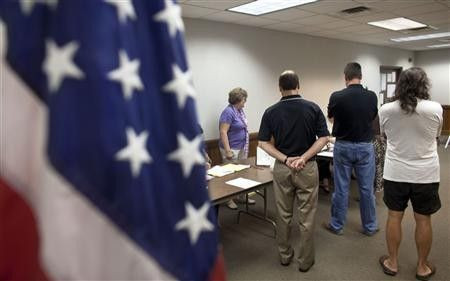No Clear Winner in Wisconsin's Summer of Discontent

Wisconsin voters have gone through a summer of historic and bitter recall votes for state legislators -- the most in U.S. history -- at a cost of about $40 million in campaign spending.
But it's still not clear who won.
The Wisconsin results show neither a wave of support for the governor nor a wave of opposition, said John Pitney, Jr., American politics professor at Claremont McKenna College. They do show that sharp policy charges can energize the affected interest groups. Hurt the unions, and the unions will react.
Wisconsin Republicans who swept to control of the governor's mansion and legislature in the November 2010 elections kept their majority in the state senate by a single seat after losing five of the nine recall votes.
Democrats noted that one remaining Republican state senator had voted against Walker's curbs on public sector unions, so their majority -- now 17 to 16 -- is not as strong as it was.
It's razor thin, said State Sen. Chris Larson, a Democrat. It's going to be a lot harder for them to govern.
All nine races -- 6 for Republican senators, 3 for Democrats -- were seen as a referendum on the conservative policies and tactics of newly elected Governor Scott Walker. One message: a partisan agenda can mean a powerful backlash.
Democrats had hoped to win a majority in the state senate to block Walker following a fierce battle with the governor and his Republican allies last winter over a proposed dismantling of collective bargaining rules for public worker unions.
Walker said a state budget deficit of $3.6 billion demanded the union measures, which also require union members to pay more for healthcare and other benefits.
Democrats and other critics said public workers had already agreed to steep benefit cuts. They saw the law as an attack on basic union rights dating from the New Deal and before, and staged the largest mass protests seen since the Vietnam War.
Fourteen Democratic state senators even fled the state to delay passage of the anti-union bill. But Republicans used a parliamentary maneuver to pass it without a Senate quorum, a move later challenged in court.
Anger over the bill on the Democratic side, and anger at the Wisconsin 14 on the Republican side, led to thousands of petition signatures and the nine recall votes.
The fight thrust Wisconsin into the national spotlight, and the recalls, with their record outlays of campaign cash that flowed in from all over the country, were seen as a rehearsal for 2012.
GOV. WALKER RECALL NEXT?
Larson said Republican legislators, having seen two of their colleagues fall, will not be in line with Walker in the same way they once were.
We have a strong independent streak in our state, Larson said. People said, 'You guys went too far'... The lesson should be that when one party goes way too far in shutting out the Democratic process, people are not going to like it.
But both the Republican Party of Wisconsin and Tea Party Express, which helped fight the Democrats in the recall votes, claimed victory after the recall returns were in.
Leaders at Tea Party Express see the election results in Wisconsin as proof that the voters choose fiscal responsibility over union bullying and control, the group said in a statement.
The group pointed out that Republicans also held onto a majority this past April on the state's Supreme Court.
A sense of conciliation was notably absent on both sides, and next up for Democrats looks like a full recall effort against Governor Walker.
There is a movement to recall Walker. You can feel the excitement, said Helen Welch, a supporter of Democratic state senator Jim Holperin, who kept his seat on Tuesday against Tea Party activist Kim Simac in a northern, rural district.
A Walker recall would require about 500,000 signatures to get on the ballot -- a tall order, but not impossible, given that Democrat JoAnne Kloppenburg won 750,000 votes in her unsuccessful run for the Supreme Court in April.
Mordecai Lee, governmental affairs professor at University of Wisconsin-Milwaukee, compared the recall fight to World War One trench warfare -- where success was measured by inches.
This is like the Europeanization of politics, where you can have a prime minister call an election at any time, Lee said. It goes against the basic American political culture of regularly scheduled elections.
© Copyright Thomson Reuters 2024. All rights reserved.





















